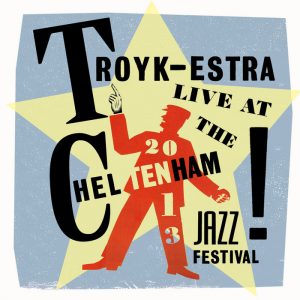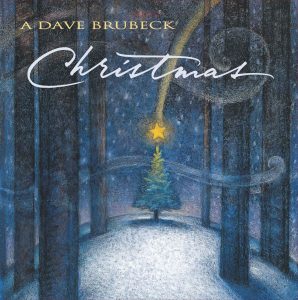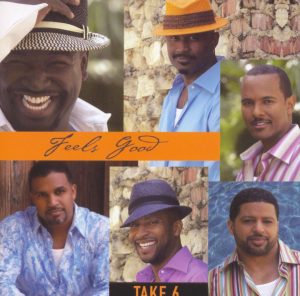Gonzalo Rubalcaba
Released February 5, 2008
The Guardian Five-Star Review
YouTube: https://music.youtube.com/playlist?list=OLAK5uy_lAAj5q8PqLkgfD7VG8-oxhBBRd-nkTnQ8
Spotify: https://open.spotify.com/album/4Z7aZs6mYYNwpWIsqn0OYO?si=aJs6Ged4Q8eCaX3GordCdA
About:
One of the most important figures to emerge from Afro-Cuban jazz in the ’90s, Gonzalo Rubalcaba is an extraordinarily versatile pianist able to blend disparate strands of Cuban and American jazz tradition into a fresh, modern whole. Born into a musical family in Havana on May 27, 1963, Rubalcaba began studying classical piano at age eight, honing his technique in that area for the next 12 years while playing around Havana by night. In 1983, he toured France and Africa with Cuba’s longstanding Orquesta Aragon, and formed his own band, Grupo Proyecto, in 1985, the same year he was discovered by Dizzy Gillespie. In 1986, Rubalcaba played the Havana Jazz Festival with the American rhythm section of Charlie Haden and Paul Motian, and with Haden’s support soon appeared at major international festivals like Montreal and Montreux. Rubalcaba’s early dates for Blue Note — 1990’s Discovery: Live at Montreux and the following year’s The Blessing — were instant classics, breaking him among American jazz audiences and showcasing his virtuosic technique and dense improvisations. Rubalcaba was finally able to play for American audiences beginning in 1993, including a star-making appearance at Lincoln Center, and soon emigrated from Cuba (though not to the U.S. right away; he eventually settled in South Florida in 1996). Rubalcaba recorded for several labels, including Blue Note, which was home to much of his best later work, including 1999’s introspective Inner Voyage, 2001’s Grammy-winning Supernova, 2004’s Paseo, which offered new interpretations of old songs, and 2005’s aptly named Solo. In 2002 Rubalcaba shared the title of Artist in Residence at the Montreal Jazz Festival with fellow pianist Chucho Valdés, and in 2003, as part of the Bele Bele Jazz Club series, issued Straight Ahead, re-releases of three separate recording sessions between 1986 and 1987.
Steve Huey
Track Listing:
1. Looking in Retrospective 9:42
2. This Is It 12:31
3. Aspiring to Normalcy (Matt Brewer) 13:07
4. Peace (Horace Silver) 4:09
5. Hip Side 8:34
6. Infantil (Gonzalo Rubalcaba) 7:07
7. Preludio Corto No. 2 for Piano (Tu Amor Era Falso) 10:07
Personnel:
Gonzalo Rubalcaba: piano, keyboards
Yosvany Terry: alto, soprano & tenor saxophones, percussion
Mike Rodriguez: trumpet, flugelhorn
Matt Brewer: acoustic bass
Marcus Gilmore: drums
Recorded May 29 – June 1, 2007, at Avatar Studios, New York, NY
Produced by Gonzalo Rubalcaba
Executive Producer: Ken Blaydow
Recording and tracking engineer: Jim Anderson P
ost-digital production engineer: Mario Garcia
Mixing and mastering engineer: Allan Tucker
Creative direction: Gordon H Jee
Art direction and design: Carla Leighton
Review:
Cuban pianist Gonzalo Rubalcaba has been unfairly sidelined by some jazzers as a gifted lightweight, thanks to his occasional tendency towards grandstanding. But the 44-year-old from Havana has dropped plenty of clues as to his real powers – notably his dazzling duet performances with Chick Corea on the latter’s 2003 Rendezvous in New York collection, which even upstaged guests such as Joshua Redman, Bobby McFerrin and the late Michael Brecker. This is a jazzers’ album in its ingeniously devious postbop melodies and emphasis on improv. But it’s also a broad-based contemporary set, from the straight-played piano piece by Cuban composer Alejandro García Caturla to the hip-hop feel generated by the stunning drummer Marcus Gilmore. Rubalcaba often suggests Herbie Hancock, both in the long-limbed stride of his improvising and the clipped but tantalisingly suggestive accompaniment he puts behind soloists. Dreamy piano speculations switch into edgy funk grooves, with Cuban saxophonist Yosvany Terry reinforcing the Steve Coleman feel; hip-hop intertwines with mid-60s Miles free-swing. There’s a surprise around every corner, and Avatar certainly sounds like a contender for those end-of-year lists.
John Fordham (The Guardian)





